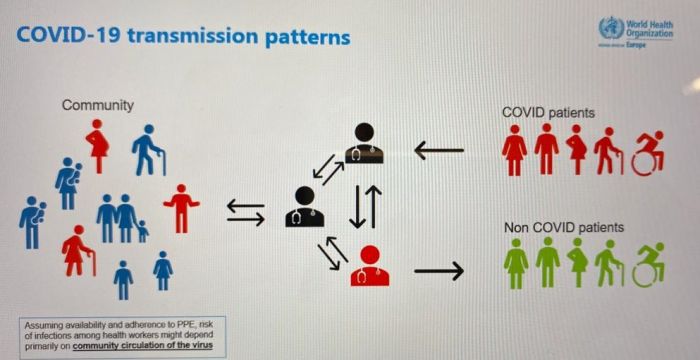No country or health system, even the most developed or sophisticated, can claim to be free of healthcare-associated infections (HAIs). Effective Infection Prevention Control (IPC) needs safe healthcare settings for adequate IPC programmes in all facilities, adequate training and more quality personal-protective equipment.
This was the core message from Ana Paula Coutinho Rehse’s presentation, technical officer at WHO Europe, that was largely shared by the participants of the CEI-WHO Task Force webinar held on 14 October 2020.
Defective IPC programmes have come under the spotlight as a result of COVID-19 and previous large-scale outbreaks. However, the problems faced by IPC professionals are long-lasting and deep-rooted.
According to data elaborated by the European Centre for Disease Prevention and Control, more than 2.6 million new cases of healthcare-associated infections occur every year in Europe. To reverse this trend, a structural change is needed, with effective IPC requiring constant action at all levels of the health system, from policymakers to facility managers, health workers and those who access health services.
For more info: apuzzo@cei.int


